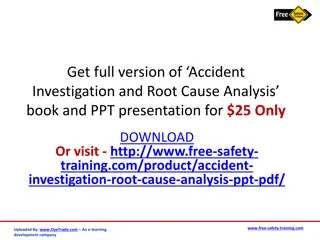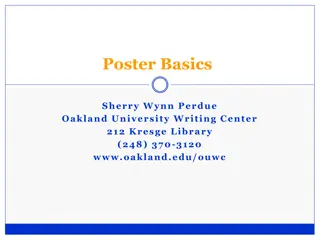
Exploring Wander-Thirst through Poetry and Grammar
Step into a poetic journey exploring wander-thirst with vocabulary lessons, poetic analysis, figure of speech discussions, and grammar exercises. Dive deep into the desire to explore, understand metaphors, and grasp modal verbs in this engaging educational content.
Download Presentation

Please find below an Image/Link to download the presentation.
The content on the website is provided AS IS for your information and personal use only. It may not be sold, licensed, or shared on other websites without obtaining consent from the author. If you encounter any issues during the download, it is possible that the publisher has removed the file from their server.
You are allowed to download the files provided on this website for personal or commercial use, subject to the condition that they are used lawfully. All files are the property of their respective owners.
The content on the website is provided AS IS for your information and personal use only. It may not be sold, licensed, or shared on other websites without obtaining consent from the author.
E N D
Presentation Transcript
Notebook work Lesson -4 Wander Thirst Vocabulary 1- Wander-thirst - the desire to explore 2- Bit - command 3- Voyaging - going on a journey 4- Yonder - there 5- Horizon - the line where the sky and the land seem to meet
LESSON 4 Wander-Thirst (Poem) Get Going A. Let us find the answer from the poem. Q1) What are some of the things that call the poet? Ans) Some of the things that call the poet are the seas, stars, sky, river, road and bird. Q2) According to the poet, what can a man have as a friend and as a guide? Ans) A man can have the sun for a friend and the star for a guide.
B. Let us read between the lines . Q1) What do these lines mean: The old ships draw to home again, the young ships sail away ? Ans) The old people return to the comfort of their homes whereas the young venture out to seek new adventures. Q2) Why does the poet say come I may, but go I must ? Ans) The poet says this because even though he want to explore new lands,he cannot stay at one place for a long time. Q3) It works in me like madness a) What is referred to as it ? Ans) It refers to the wander-thirst that the poet feels. b) What does this tell us about the poet? Ans) This tells us that he is a free spirit and is always ready to leave on an adventure.
Figure of speech SIMILES Simile use the words like or as to compare and describe things. METAPHORS Metaphors compare two things directly without using the words like or as. Q1) Vocabulary junction a) - Simile b) -Simile c) -Metaphor d) -Metaphor e) -Metaphor f) -Metaphor g) -Simile h) -Simile i) -Simile j) -Metaphor
Q2) Complete these metaphors and similes a) an exciting vacation b) a new book c) a swarm of ants d) a canopy e) a treasure hunt f) bundle of joy g) maze
GRAMMAR JUNCTION MODAL VERB Words like may, should, would and must helps us to understand the mood Or attitude of the speaker. They are called Modal verbs. Q1) Tick the sentence that uses modal verbs appropriately. a)-i b)-i c)-ii d)-i e)-i f)-i g)-i
GRAMMAR STATION Q1) Identify the modal verb .. a) Should b) May c) Must d) Can t e) Might Q2) Fill in the blanks . a) Should b) Can c) Will d) May e) Must
The End Stay Home Stay Safe





















